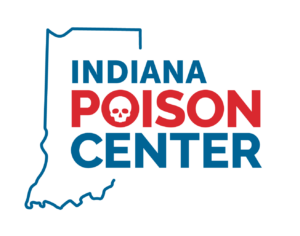The Indiana Poison Center (IPC) is the designated Regional Poison Information Center for Indiana and is accredited by America's Poison Centers. Funding and support are provided by the Indiana Department of Health (IDOH), Indiana University Health (IU Health), the Health Resources and Services Administration (HRSA)'s Poison Control Program, the Children's Health Insurance Program (CHIP), the Indiana Family & Social Services Administration (FSSA), and hospitals throughout the state.
IPC provides poison information, recommendations for decontamination and treatment of poison exposures, education for community members and healthcare providers, public health surveillance, hazmat and disaster response, and much more for the entire state of Indiana - 24 hours a day, 365 days a year. Services are free to the public and completely confidential.
Calling IPC is faster and less expensive than a visit to urgent care or an emergency room. Most poisonings are not life threatening and can be handled at home with the help of one of our highly-trained and friendly Specialists in Poison Information (SPIs), saving you precious time and money. Since the center was founded in 1979, our SPIs have handled more than 2.8 million cases, including calls about:
- Intentional and unintentional exposures involving prescription and over-the-counter medications, herbal supplements, and vitamins
- Recreational drugs, including alcohol
- Personal care products, cleaning products, essential oils, and other household items
- Heavy metals, such as lead, arsenic, mercury, and others
- Gases, fumes, and vapors, such as carbon monoxide, pesticides, fertilizers and agricultural products, and industrial chemicals
- Food poisoning and botulism
- Envenomation by snakes, spiders, and insects
- Toxic plants and mushrooms
IPC is committed to educating the general public and health professionals about poison prevention. Public education is available through:
- Educational materials
- Programs for children and adults
- Classes and presentations to community organizations
- Webinars
- On-site training
- Publications
If you have (or think you have) a poison emergency, or would just like some information on poison prevention, please contact the Indiana Poison Center at 1-800-222-1222.
